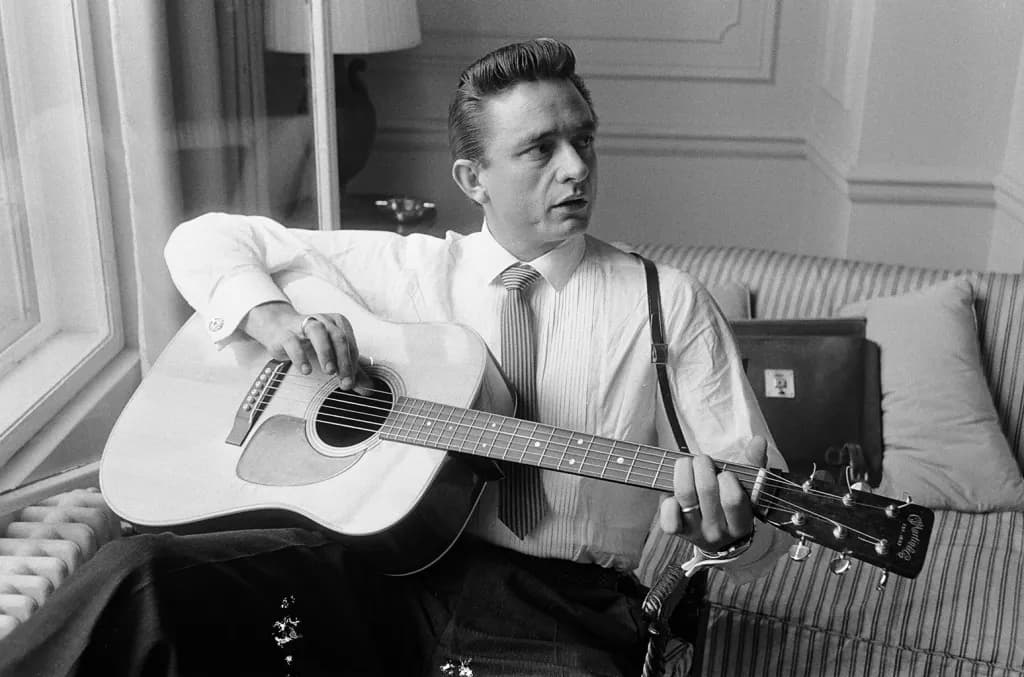
A Poignant Reflection on Life’s Journey and the Hope of Eternal Rest
“Wayfaring Stranger”, in Johnny Cash‘s weathered voice, becomes more than just a song; it’s a spiritual journey, a poignant reflection on life’s trials, and a hopeful yearning for a peaceful afterlife. While pinpointing a specific chart position for Cash’s version is difficult due to its nature as a traditional folk song covered numerous times, its impact is undeniable, etching itself into the hearts of listeners across generations. It’s important to understand that “Wayfaring Stranger” isn’t a song born in the studios of Nashville; it’s a traditional folk ballad, its origins shrouded in the mists of time, passed down through generations, each rendition adding a new layer of meaning and emotion.
This song is a lament, a whispered prayer from a traveler weary of life’s hardships. The lyrics speak of a journey through a world filled with “sickness, toil, and danger,” a world that can often feel like a lonely and unforgiving place. Yet, amidst this weariness, there is a glimmer of hope, a vision of a “bright land” where these earthly burdens will cease to exist. This “bright land” is, of course, a metaphor for heaven, a place of eternal peace and rest.
Johnny Cash‘s interpretation, particularly his version featured on the Unearthed box set released in 2003, adds a unique dimension to this timeless ballad. His voice, by this point in his career, was etched with the lines of a life fully lived – love, loss, struggle, and redemption. This patina of experience lends an authenticity to the song, making it feel less like a performance and more like a confession, a shared moment of vulnerability between the singer and the listener. The sparse instrumentation, often just Cash’s voice and a simple acoustic guitar or sometimes an accordion, further enhances this feeling of intimacy. It’s as if he’s sitting across from you, sharing his deepest thoughts and fears.
The power of “Wayfaring Stranger” lies in its universality. It speaks to the human condition, to the shared experience of facing hardship and longing for something more. Whether you interpret the “bright land” literally as heaven or metaphorically as a state of peace and contentment, the song offers solace and hope in the face of adversity. For older listeners, particularly those who have weathered life’s storms, the song can resonate deeply, evoking memories of loved ones lost and the inevitable journey that awaits us all.
This song isn’t about flashy production or catchy hooks; it’s about the raw emotion, the simple truth of the human experience. Johnny Cash, with his gravelly voice and understated delivery, strips away all the artifice and presents the song in its purest form. It’s a reminder that even in our darkest moments, there is always hope, a belief that a better place awaits us. It is a song that stays with you long after the final note fades, a quiet meditation on life, death, and the enduring power of hope. The song has been covered by countless artists, but Cash’s version has a special gravitas, a weight of experience that makes it profoundly moving. It stands not as just a song, but as a testament to the enduring power of folk music to speak to the deepest parts of the human soul.